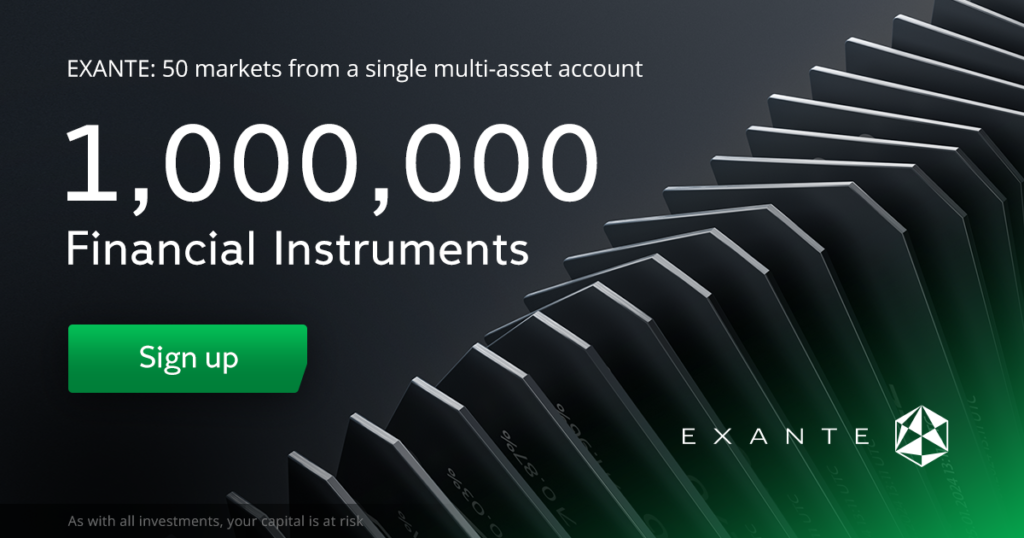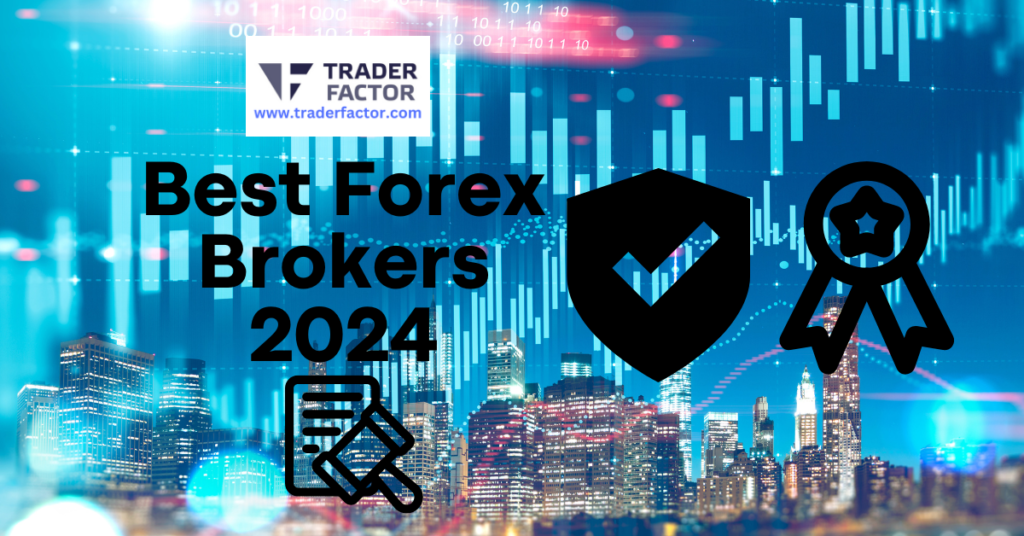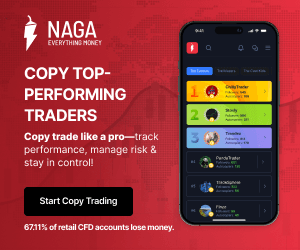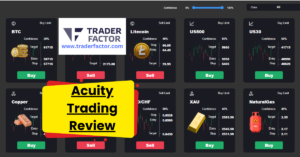When selecting a Forex trading mentor, you need to clearly outline your trading goals and verify that the mentor’s approach aligns with those objectives. Start by evaluating their track record and risk management strategies to confirm consistency and alignment with your risk tolerance. Check their teaching ability; they must simplify complex concepts and match your learning preferences. Don’t forget to review their mentoring experience and seek testimonials from past mentees. This comprehensive vetting will guarantee you choose a mentor who not only enhances your trading skills but genuinely contributes to your trading success. Exploring further might reveal even deeper insights and better alignment with your trading aspirations.
Table of Contents
ToggleDefining Your Needs and Goals
Before selecting a day trading mentor, it’s crucial to clearly define your trading objectives and aspirations. You’ve got to know what you’re aiming for—whether it’s mastering short-term trades or understanding global economic factors affecting the markets. This clarity helps you identify a mentor whose expertise aligns perfectly with your specific trading goals.
Consider your mentorship preferences. Are you looking for one-on-one sessions that offer personalized guidance, or do you thrive in a more collaborative group learning environment? Each format has its benefits, and you’ll want to choose one that fits your learning style.
Next, think about your learning objectives. What specific skills or knowledge are you aiming to acquire? This could range from technical analysis to strategy optimization, which involves refining techniques to increase your trading efficiency and success rate. Confirm any potential mentor can provide targeted insights and guidance in these areas.
Scrutinizing Track Record

Why should you closely inspect a mentor’s track record? Well, it’s essential for ensuring that the day trading mentor’s past performance aligns with the results you’re aiming for. This scrutiny boosts mentor credibility, showing you they can walk the talk. You’re not just looking for occasional wins; you want to see performance consistency, which indicates that the mentor can achieve positive outcomes repeatedly over time.
During your track record evaluation, focus on how the mentor has managed risk. Effective risk management strategies are a cornerstone of successful trading. Does the mentor have a clear approach to minimizing losses and protecting gains? Explore into their historical data; it’s not just about the profits but also how they’ve handled downturns. This insight will help you set realistic expectations and decide if their risk tolerance aligns with yours.
Assessing Pedagogical Skills

After examining a mentor’s track record, it’s equally crucial to evaluate their ability to teach effectively. You’ll need to delve into their pedagogical skills to make sure they can translate complex trading concepts into understandable chunks. This is where evaluating teaching methods becomes essential. Ask yourself: Do they articulate ideas clearly? Can they adjust their explanations to match your learning preferences?
An options trading mentor’s communication skills are significant. They should be able to listen to your questions and communicate their thoughts clearly. This ensures that no misinterpretations occur and that you’re both on the same page. Demonstrating patience is another key trait. Forex trading can be intricate, and you might need concepts repeated or broken down further. A good mentor will understand this without showing frustration.
Providing feedback is where a mentor truly excels. Feedback should be constructive and tailored to your actions, guiding you towards better trading decisions. Check how they’ve handled this with previous mentees—this could be a deal-breaker.

Here’s a table to help you evaluate potential mentors:
| Criteria | Why It’s Significant |
|---|---|
| Evaluating Teaching Methods | Ensures the mentor can simplify complex topics. |
| Communication Skills | Prevents misunderstandings and enhances learning. |
| Learning Preferences | Matches teaching styles to your learning needs. |
| Providing Feedback | Helps refine your strategies and grow your skills. |
| Demonstrating Patience | Supports a comfortable learning pace and understanding. |
Choosing the right mentor involves looking beyond their success to how effectively they can pass on their knowledge.
Evaluating Mentoring Experience

To effectively assess a mentor’s ability to guide you through your trading journey, consider their past mentoring experiences and the structure of their programs. Immerse yourself in their mentorship background, focusing on the variety of mentoring techniques they’ve employed over the years. It’s essential to know how they adapt their strategies to fit different learning styles and challenges that traders face.
When conducting your experience evaluation, look for evidence of their teaching proficiency. This isn’t just about how long they’ve been mentoring but how well they’ve been able to impart knowledge. You’ll want a mentor who doesn’t just talk theory but provides practical guidance that translates into real-world trading success.

Ask for testimonials or reviews from previous mentees. These insights can give you a clear picture of what to expect and how previous learners have benefitted. Are these traders now better equipped to manage their portfolios? How do they rate the mentor’s ability to simplify complex concepts?
Lastly, make sure that their teaching methods resonate with your learning preferences. A good fit will enhance your ability to absorb and apply new knowledge effectively, making your investment in a mentor worthwhile. Prioritize mentors who offer structured learning paths tailored to your specific needs and goals.
Analyzing Trading Approach

When analyzing a mentor’s trading approach, make certain their strategies align with your personal risk tolerance and trading goals. It’s important that the methods they teach don’t just sound good but also fit well with how you manage risk and what you aim to achieve in the market.
Start by conducting a thorough risk assessment. Ask how the mentor evaluates risks and integrates this into their strategy. This is necessary because if their risk level is too aggressive or too conservative for you, it could impact your trading performance negatively.
Next, focus on strategy alignment. Does the mentor’s preferred trading style complement your own? Whether it’s day trading, swing trading, or another style, you’ll want to make sure there’s a good match that can foster growth.
Consider the significance of portfolio diversification. A good mentor should not only preach about the benefits but should also practice diversification in their own trading setups. This helps in reducing risk and stabilizing returns.
Delve into their trade analysis process. How do they pick their trades? What tools do they use? Understanding this can give you insights into their level of expertise and thought process.
Understanding Risk Management

Understanding risk management is necessary as it helps you mitigate potential losses while maximizing your trading opportunities. When you immerse yourself in Forex trading, it’s important to assess risks accurately. This means not only understanding the potential losses involved but also knowing how different market conditions can impact your trades.
A key component of risk management is position sizing. You’ve got to determine the size of your trade based on your current portfolio balance and the risk level you’re comfortable with. It isn’t just about how much you can win, but how much you can afford to lose without derailing your financial goals.
Stop loss strategies are your safety net. By setting a stop loss, you’re instructing your broker to close your position when a certain price is reached, preventing further losses if the market moves against you. This tool is indispensable during volatile market conditions.
Portfolio diversification is another important strategy. Don’t put all your eggs in one basket; spread your investments across different assets to minimize risk. Here’s a simple breakdown:
| Risk Management Technique | Purpose | Significance |
|---|---|---|
| Position Sizing | Control risk per trade | Vital for financial health |
| Stop Loss Strategies | Limit potential losses | Crucial in volatility |
| Portfolio Diversification | Spread risk across assets | Reduces overall risk |
Engaging With Potential Mentors

Once you’ve identified potential mentors, initiating contact and assessing their compatibility with your trading goals is vital. Start by reaching out through email or social media to set up initial interactions. These first conversations are pivotal; they’ll give you a sense of the mentor’s approach and whether it aligns with your trading philosophy.
During these early discussions, focus on aligning goals. Be clear about what you’re seeking in forex trading and ask direct questions about how they can assist you in achieving those objectives. This isn’t just about their success but how their strategies can be customized to suit your needs.

Also, don’t hesitate to discuss budget considerations early on. It’s crucial to know what the mentor charges and whether this aligns with your financial plan without straining your resources. Transparent conversations about costs will help prevent misunderstandings later and guarantee the mentorship moves forward if there’s a good fit on both sides.
Final Evaluation and Decision
After carefully evaluating each mentor’s credentials, teaching style, and compatibility with your goals, it’s time to make your final decision. This stage is critical; it’s not just about choosing any mentor, but the right one for you.
Your final assessment should weigh heavily on mentor compatibility. Ask yourself, “Does this mentor’s approach to trading align with my own strategies and aspirations?” It’s essential that their teaching style resonates with your learning preferences to maximize the mentorship benefits.
When it comes to day trading mentor near me selection, consider how each candidate’s expertise matches your specific needs. Have they consistently demonstrated the ability to navigate the forex market with success and integrity? Are they equipped to offer customized advice that pertains directly to your scenarios?
Decision making in mentor selection isn’t just about credentials. It’s about predicting which mentor will add the most value to your trading career. Trust your gut feeling combined with an objective analysis of their track record and feedback from past mentees.
Choosing the right mentor will not only guide your trading decisions but also accelerate your learning curve and potential for success in the volatile world of forex trading. Choose wisely, and you’ll set a foundation for fruitful mentorship.
Frequently Asked Questions

How Often Should I Communicate With My Forex Trading Mentor?
You should communicate with your mentor based on set expectations, considering their availability and established communication boundaries. Regular feedback is essential, so determine the frequency of contact to enhance your learning process effectively.
What Are the Typical Costs Associated With Forex Mentorship?
You’ll find mentorship fees vary, often depending on mentor availability, training programs offered, and additional support resources. Assess these costs against potential mentorship benefits to guarantee it aligns with your financial expectations.
Can I Switch Mentors if My Goals or Interests Change?
You can switch mentors if your goals or interests change to guarantee mentor compatibility and goal alignment. It’s important to find someone who adapts to your evolving needs and new interests.
How Do I Handle Disagreements or Conflicts With My Mentor?
When disagreements arise with your stock trading mentor, prioritize clear communication and frequent discussions to resolve conflicts. If aligning goals remains challenging, consider changing mentors to better match your evolving interests and needs.
Are There Specific Technological Tools or Platforms Recommended by Forex Mentors?
You’ll find that experienced Forex mentors often recommend specific trading platforms, analysis tools, charting software, signal providers, and risk management techniques to enhance your trading strategy and decision-making process.
Disclaimer:
All information has been prepared by TraderFactor or partners. The information does not contain a record of TraderFactor or partner’s prices or an offer of or solicitation for a transaction in any financial instrument. No representation or warranty is given as to the accuracy or completeness of this information. Any material provided does not have regard to the specific investment objective and financial situation of any person who may read it. Past performance is not a reliable indicator of future performance.

















